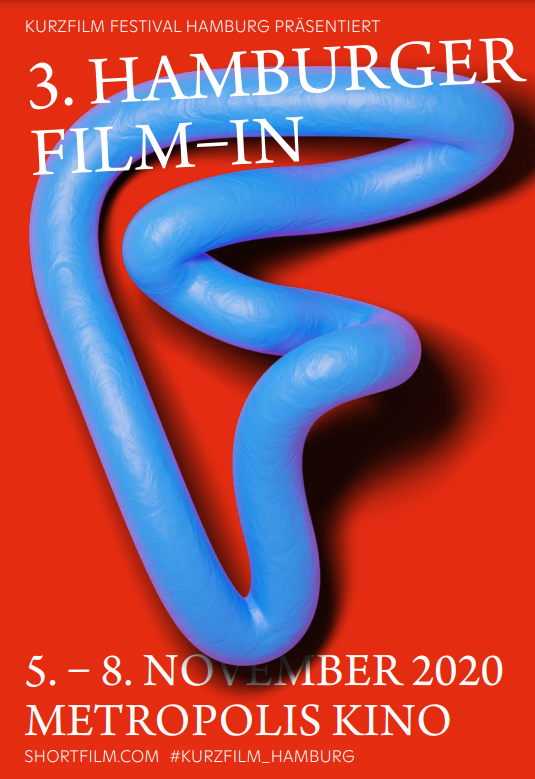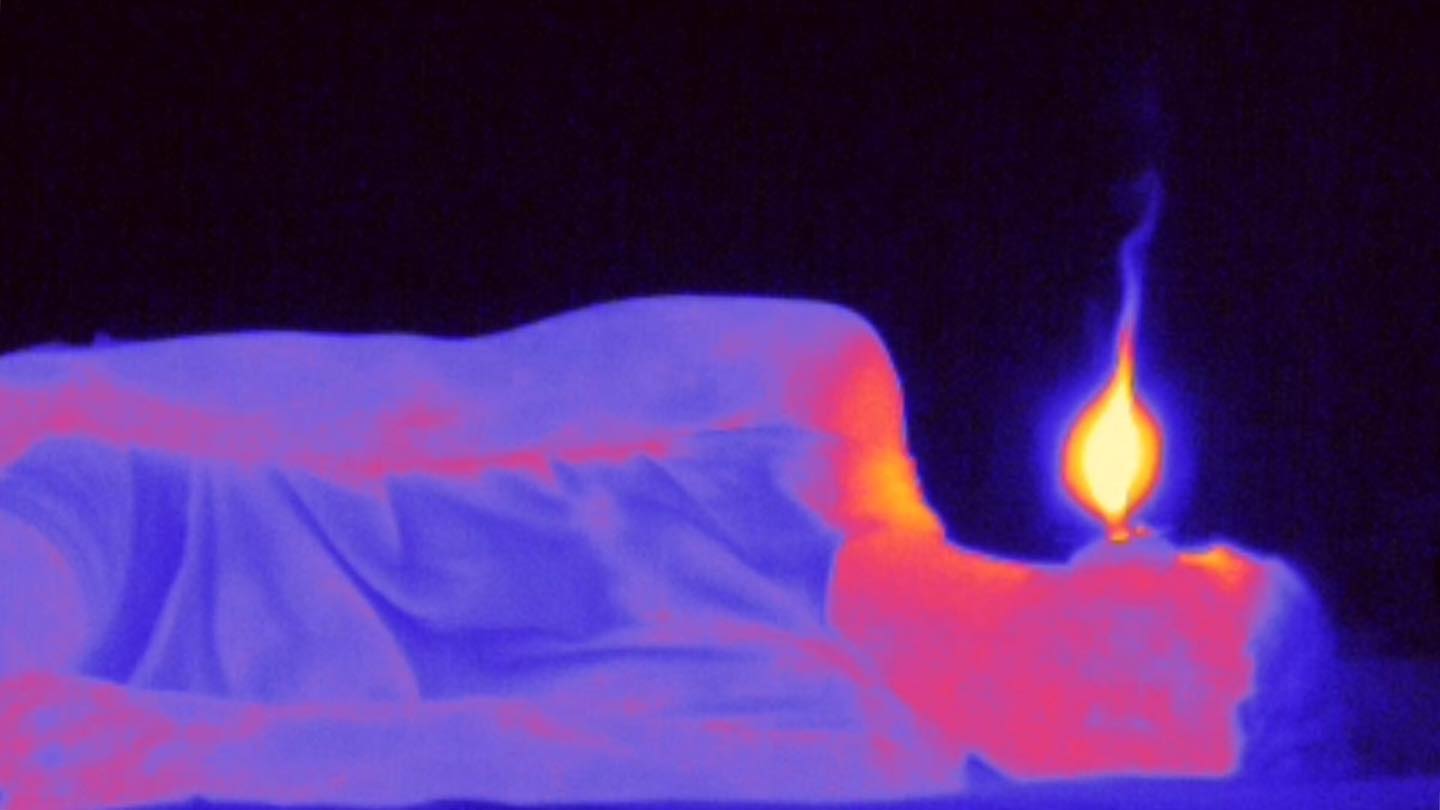Seit 1985 verwandelt sich Hamburg einmal im Jahr in ein Mekka für kompakte Kinokunst. Beim Kurzfilm Festival Hamburg versammeln sich internationale Filmemacher*innen aus aller Welt, um in Wettbewerben gegeneinander anzutreten – und dabei die Kunstform in all ihren Facetten zu zelebrieren. Ein „Kurzfilm“ ist allein durch seinen Namen schon durch seine zeitliche Limitierung definiert – doch genau diese Limitierung ermöglich ihm ein schier unendliches Potential. Ein Kurzfilm kann so ziemlich alles sein: Ein Actionfilm in zehn Minuten. Ein Drama in einem Akt. Ein abstrakter Kunstfilm, ungebunden an irdische Faktoren wie Genre, Länge oder Handlung.
Das 36. Kurzfilm Festival Hamburg hätte vom 2. bis 8. Juni 2020 stattgefunden. Es musste aus bekannten Gründen ausfallen.
1967 wurde in Hamburg das 1. Film-In veranstaltet – damals eine Werbemaßnahme für das neu eingerichtete Produktionsbüro des Kinobetreibers Werner Grassmann (späterer Gründer des Abaton Kinos). Um das Film-In publik zu machen, fuhren drei Filmschaffende nach Grenoble zu den Olympischen Winterspielen, um von dort das Olympische Feuer nach Hamburg zu tragen. Und so haben sie es auch gemacht – mit dem Auto runter nach Grenoble, die steile Treppe zum Feuer hoch, die Wachpolizei ignoriert, eine Zigarette am Feuer entzündet, der Polizei entkommen, dauergeraucht im Auto bis Hamburg und dort dann an einer Fackel, aus dem Auto gehalten, das Feuer in die Brüderstraße getragen, wo das Licht vom Projektorflimmern abgelöst wurde. Es war das Gründungsmoment der »Hamburger Filmmacher Cooperative«. Ein Beispiel für Vertrieb und Produktion eines Anderen Kinos hatten sich die Hamburger an der New Yorker »Film-Makers’ Cooperative« genommen. Ihr Gründungsmitglied war Jonas Mekas, dessen Gedanke und Quintessenz seines Handelns – »And from now on my country will be cinema.« – das Motto des diesjährigen Festivals ist. Mekas hat sich nach seiner Flucht aus Europa 1950 in New York eine neue Heimat gesucht. Gefunden hat er sie im Kino. Aus dem Kino heraus hat er den Blick auf die Welt verändert. Für andere war Kino nicht das Land der Möglichkeiten – ihnen ging es darum, die bestehenden Verhältnisse radikal zu ändern. Holger Meins schrieb aus Berlin an den Freund und Kollegen Hellmuth Costard aus Hamburg: »daß wir euch nicht viel erfolg wünschen, ist auch klar, weil wir meinen, daß ihr den falschen, den kapitalistischen weg eingeschlagen habt daß ihr erfolg mit dem film-in haben werdet, ist auch klar, denn euer unternehmen ist produkt und reproduktion der bestehenden gesellschaft daß diese situation geändert werden muß, ist auch klar.« Holger Meins hatte in Hamburg an der HFBK Film studiert, als 1966 dort die erste Filmklasse eingerichtet wurde. 1967 wurde in Berlin die Deutsche Film und Fernsehakademie (dffb) gegründet, und Meins zog nach Berlin. Später ging er als Mitglied der 6 ersten RAF-Generation in den Untergrund und starb 1974 in der Haft an den Folgen eines Hungerstreiks. Die körperliche Erfahrung im Kino und mit dem Film selbst hat die Wiener Musikerin und Filmemacherin Billy Roisz für das 36. Kurzfilm Festival Hamburg im Trailer umgesetzt: »quarantine carousel«. Die Paralyse, die Roisz empfunden hat, als der Lockdown weltweit das soziale Leben veränderte, hat sie zum Anlass genommen, mit der Kreisbewegung und damit der Kamera als Zentrum eine Reise an den Anfang der Kreation zu unternehmen. Die Sogwirkung ihrer Filme entfaltet sich durch die enge Verknüpfung von analogem und digitalem Bild. Ihre Cluster in Ton und Bild erinnern an die abstrakten Musterverläufe der großen Weberinnen des Bauhaus, Gunta Stölzl, Anni Albers.
Wir freuen uns darauf, mit Ihnen und Euch beim 3. Hamburger Film-In nicht aus dem Kino zu gehen, die roten Sitze als zweite Heimat zu markieren und für die Zukunft zusammenzukommen.
---------------------------------------------------------------
»And it rained – It rained in her soul and into that of sleeping Adam – The sleeping fragments of paradise. And from now on my country will be cinema« Jonas Mekas The 36th Hamburg Short Film Festival would have taken place from 2 June to 8 June 2020. For well-known reasons, it did not take place.
In 1967, the first Film-In was hosted in Hamburg. Back then, it was a promotion for the newly founded production office by the cinema operator Werner Grassmann (Abaton Cinema). To promulgate the event, three students drove to the Olympic Winter Games in Grenoble to bring the Olympic Fire to Hamburg. And that’s what they did: They drove the car to Grenoble, went up the steep stairs to the fire, ignored the police guard, lit a cigarette with the fire, escaped the police, chain smoked in the car all the way to Hamburg and then carried a torch, which they held out of their car, to the Brüderstraße, where the fiery light was replaced by the flicker of the projector. This was the founding moment of the »Filmmacher Cooperative«. The Hamburgians followed the example of New York’s »Film-Makers’ Cooperative« regarding distribution and production. Jonas Mekas was one of their founding members: »And from now on, my country will be cinema.« For others, the cinema wasn’t the country of the possible – they were more interested in radically changing the existing conditions. Holger Meins wrote from Berlin to his friend and colleague Hellmuth Costard in Hamburg, »it is clear that we are not wishing you a lot of success, because we believe you took the wrong, the capitalist path it is also clear that you will be successful with your film-in, since your enterprise is product and reproduction of the existing society it is also clear that this situation must be changed« Holger Meins studied film in Hamburg at the HFBK when the first film class was established in 1966. In 1967, the German Film and Television Academy (dffb) was founded in Berlin, and Meins moved there. Later he joined the first generation of the German left-wing terrorist organization RAF and he died in 1974, in prison after a hunger strike. For the 36th Hamburg Short Film Festival, the Viennese musician and film maker Billy Roisz transformed the physical experience of cinema and film itself into a trailer: »quarantine carousel«. The paralysis felt by Roisz as the lockdown changed social life all over the world induced her to take a journey to the beginning of creation with the camera as the centre of circular motions. Roisz’ works pull in the viewers through the tight linking of analogue and digital images. Their cluster in sound and image remind us of the abstract patterns of the great weavers of Bauhaus, Gunta Stölzl, Anni Albers. Bauhaus for new seeing. After escaping from Europe, Jonas Mekas was looking for a new home in New York and found one in cinema. Out of the cinema, he changed the view of the world. His invitation to see more intensely is now more relevant than ever. We are looking forward to not leaving the cinema with you at the 3rd Hamburg Film-In, to marking the red seats as our homes and to getting together for the future.

